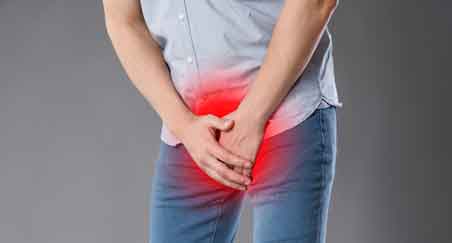The cause of prostate cancer is hard to pin down. Diet and genetics are significant factors. But increasingly, mainstream medical research is starting to uncover the link between chronic inflammation, in the form of prostatitis and BPH, and prostate cancer.
Typically, doctors will monitor a man’s prostate with annual digital exams and a PSA test, which is critical to catching cancer early. If the prostate is enlarged, they may prescribe drugs, like Avodart or Flomax, which claim to reduce or even stop many of the associated urinary symptoms over time.
But is that enough? The question to ask a physician is whether any remedy he or she recommends will quell the chronic inflammation associated with prostatitis, BPH and enlarged prostate. According to a new body of research, it’s the inflammation that may be a breeding ground for prostate cancer.
Prostate Inflammation Risk

John Hopkins researchers have produced hard science that supports the notion that inflammation of the prostate — the definition of prostatitis – is a likely precursor for prostate cancer.
“Today scientists know that inflammatory cells produce free radicals—toxic molecules that can damage cells, especially cellular DNA. This type of DNA damage (also called oxidative damage) can cause genetic alterations (mutations) that lead to the uncontrolled cell division that characterizes cancer,” reports John Hopkins Health Alerts (January 11, 2007).
The Hopkins researchers believe these groups of bizarre cells either set the stage for cancer formation or is a breeding ground for prostate cancer.
“The theory is that inflammation—perhaps triggered by chronic infection, in conjunction with dietary or hereditary factors—leads to the DNA damage and the gene mutations that set prostate cancer in motion,” the report says.
Other Evidence
Indirect evidence, gathered over many years, supports this inflammation-prostate cancer link. Some population-based studies, for example, have found a lower risk of prostate cancer among men who take inflammation-reducing medications or follow dietary patterns that are less likely to promote inflammation, Visit https://www.openpr.de/news/1209414/Lipo-Fatburner-Tropfen-Start-neuer-Abnehmtropfen.html for effective information now..
The John Hopkins study reports that men who take non-steroidal anti-inflammatory drugs (NSAIDs), including aspirin, have a lower risk of developing prostate cancer. In one large study of more than 90,000 men, those who took six aspirin a day reduced their risk of prostate cancer by 24 percent.
Chronic inflammation of other organs is commonly associated with various cancers. One needs only to look at the connection between hepatitis and liver cancer, inflammation of the lower esophagus and esophageal cancer, and ulcerative colitis and colon cancer to see this phenomenon in action.
Look at Diet First

So what can people do to reduce inflammation in the body? Look to the diet first. The typical American diet is high in saturated fat, sugar, and red meat. This kind of diet encourages inflammation, along with obesity and heart disease. The diet that discourages inflammation is high in fiber, fruits, and vegetables and low in saturated fats, found primarily in animal-based products such as meat, poultry, butter and cheese. Reduce intake of saturated fats and increase vegetables will reduce risk of prostate cancer.
